Latest Sheet Music
Luciano Berio

Luciano Berio, Cavaliere di Gran Croce OMRI (October 24, 1925 – May 27, 2003) was an Italian composer. He is noted for his experimental work (in particular his 1968 composition Sinfonia for voices and orchestra and his series of numbered solo pieces titled Sequenza) and also for his pioneering work in electronic music.
Berio's electronic work dates for the most part from his time at Milan's Studio di Fonologia. One of the most influential works he produced there was Thema (Omaggio a Joyce) (1958), based on Cathy Berberian reading from James Joyce's Ulysses. A later work, Visage (1961) sees Berio creating a wordless emotional language by cutting up and rearranging a recording of Cathy Berberian's voice.
In 1968, Berio completed O King a work which exists in two versions: one for voice, flute, clarinet, violin, cello and piano, the other for eight voices and orchestra. The piece is in memory of Martin Luther King, who had been assassinated shortly before its composition. In it, the voice(s) intones first the vowels, and then the consonants which make up his name, only stringing them together to give his name in full in the final bars.
The orchestral version of O King was, shortly after its completion, integrated into what is perhaps Berio's most famous work, Sinfonia (1967–69), for orchestra and eight amplified voices. The voices are not used in a traditional classical way; they frequently do not sing at all, but speak, whisper and shout. The third movement is a collage of literary and musical quotations. A-Ronne (1974) is similarly collaged, but with the focus more squarely on the voice. It was originally written as a radio program for five actors, and reworked in 1975 for eight vocalists and an optional keyboard part. The work is one of a number of collaborations with the poet Edoardo Sanguineti, who for this piece provided a text full of quotations from sources including the Bible, T. S. Eliot and Karl Marx.
Berio's electronic work dates for the most part from his time at Milan's Studio di Fonologia. One of the most influential works he produced there was Thema (Omaggio a Joyce) (1958), based on Cathy Berberian reading from James Joyce's Ulysses. A later work, Visage (1961) sees Berio creating a wordless emotional language by cutting up and rearranging a recording of Cathy Berberian's voice.
In 1968, Berio completed O King a work which exists in two versions: one for voice, flute, clarinet, violin, cello and piano, the other for eight voices and orchestra. The piece is in memory of Martin Luther King, who had been assassinated shortly before its composition. In it, the voice(s) intones first the vowels, and then the consonants which make up his name, only stringing them together to give his name in full in the final bars.
The orchestral version of O King was, shortly after its completion, integrated into what is perhaps Berio's most famous work, Sinfonia (1967–69), for orchestra and eight amplified voices. The voices are not used in a traditional classical way; they frequently do not sing at all, but speak, whisper and shout. The third movement is a collage of literary and musical quotations. A-Ronne (1974) is similarly collaged, but with the focus more squarely on the voice. It was originally written as a radio program for five actors, and reworked in 1975 for eight vocalists and an optional keyboard part. The work is one of a number of collaborations with the poet Edoardo Sanguineti, who for this piece provided a text full of quotations from sources including the Bible, T. S. Eliot and Karl Marx.
Chaka Khan
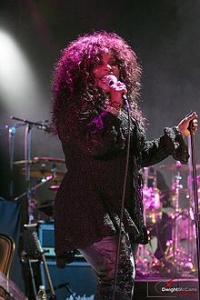
Chaka Khan (born Yvette Marie Stevens; March 23, 1953) is an American singer and composer who gained fame in the 1970s as the frontwoman and focal point of the funk band Rufus. While still a member of the group in 1978, Khan embarked on a successful solo career. Her signature hits, both with Rufus and as a solo performer, include "Tell Me Something Good", "Sweet Thing", "Ain't Nobody", "I'm Every Woman", "I Feel for You" and "Through the Fire".
Frigyes Hidas
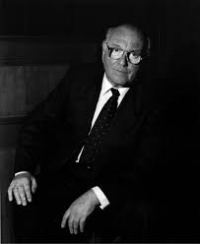
Frigyes Hidas (Hungarian: ; Hidas Frigyes in Hungarian order; 25 May 1928 – 7 March 2007) was a Hungarian composer.Hidas was born and died in Budapest, where he studied composition at the Franz Liszt Academy of Music with János Visky. After his studies, he was the musical director of the National Theater in Budapest from 1951 to 1966 and also held the same role at the city's Operetta Theater from 1974 to 1979.
Edith Piaf
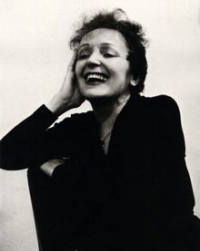
Édith Piaf (19 December 1915—10 October 1963) was a French singer and cultural icon who "is almost universally regarded as France's greatest popular singer." Her singing reflected her life, with her specialty being the ballads. Among her famous songs are "La vie en rose" (1946), "Hymne à l'amour" (1949), "Milord" (1959), "Non, je ne regrette rien" (1960), and Padam Padam.
Edith Piaf's signature song "La vie en rose" was written in 1945 and was voted a Grammy Hall of Fame Award in 1998.
The legendary Paris Olympia concert hall is where Piaf achieved lasting fame, giving several series of concerts at the hall, the most famous venue in Paris, between January 1955 and October 1962. Excerpts from five of these concerts (1955, 1956, 1958, 1961, 1962) were issued on record and CD and have never been out of print. The 1961 concerts were promised by Piaf in an effort to save the venue from bankruptcy and where she debuted her song "Non, je ne regrette rien". In April 1963, Piaf recorded her last song, "L'homme de Berlin".
Edith Piaf's signature song "La vie en rose" was written in 1945 and was voted a Grammy Hall of Fame Award in 1998.
The legendary Paris Olympia concert hall is where Piaf achieved lasting fame, giving several series of concerts at the hall, the most famous venue in Paris, between January 1955 and October 1962. Excerpts from five of these concerts (1955, 1956, 1958, 1961, 1962) were issued on record and CD and have never been out of print. The 1961 concerts were promised by Piaf in an effort to save the venue from bankruptcy and where she debuted her song "Non, je ne regrette rien". In April 1963, Piaf recorded her last song, "L'homme de Berlin".
Mozart

Wolfgang Amadeus Mozart, full name Johann Chrysostom Wolfgang Amadeus Mozart (27 January 1756 â 5 December 1791) was a prolific and influential composer of the Classical era. His over 600 compositions include works widely acknowledged as pinnacles of symphonic, concertante, chamber, piano, operatic, and choral music. Mozart is among the most enduringly popular of classical composers, and many of his works are part of the standard concert repertoire.
Mozart's music, like Haydn's, stands as an archetypal example of the Classical style. His works spanned the period during which that style transformed from one exemplified by the style galant to one that began to incorporate some of the contrapuntal complexities of the late Baroque, complexities against which the galant style had been a reaction. Mozart's own stylistic development closely paralleled the development of the classical style as a whole. In addition, he was a versatile composer and wrote in almost every major genre, including symphony, opera, the solo concerto, chamber music including string quartet and string quintet, and the piano sonata. While none of these genres were new, the piano concerto was almost single-handedly developed and popularized by Mozart. He also wrote a great deal of religious music, including masses; and he composed many dances, divertimenti, serenades, and other forms of light entertainment.
The central traits of the classical style can be identified in Mozart's music. Clarity, balance, and transparency are hallmarks of his work.
Mozart's music, like Haydn's, stands as an archetypal example of the Classical style. His works spanned the period during which that style transformed from one exemplified by the style galant to one that began to incorporate some of the contrapuntal complexities of the late Baroque, complexities against which the galant style had been a reaction. Mozart's own stylistic development closely paralleled the development of the classical style as a whole. In addition, he was a versatile composer and wrote in almost every major genre, including symphony, opera, the solo concerto, chamber music including string quartet and string quintet, and the piano sonata. While none of these genres were new, the piano concerto was almost single-handedly developed and popularized by Mozart. He also wrote a great deal of religious music, including masses; and he composed many dances, divertimenti, serenades, and other forms of light entertainment.
The central traits of the classical style can be identified in Mozart's music. Clarity, balance, and transparency are hallmarks of his work.
Nigel Hess
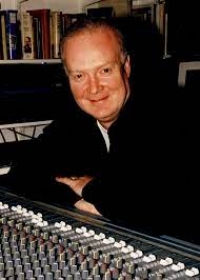
Nigel John Hess is a British composer, best known for his television, theatre and film soundtracks, including the theme tunes to Campion, Maigret, Wycliffe, Dangerfield, Hetty Wainthropp Investigates, Badger and Ladies in Lavender.
Thelonious Monk
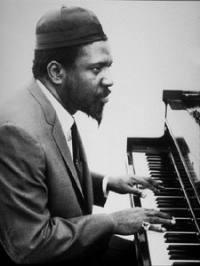
Thelonious Sphere Monk was an American jazz pianist and composer. He had a unique improvisational style and made numerous contributions to the standard jazz repertoire, including "'Round Midnight", "Blue Monk", "Straight, No Chaser", "Ruby, My Dear", "In Walked Bud", and "Well, You Needn't"
Fiorelli
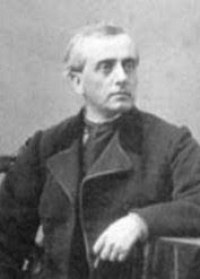
Giuseppe Fiorelli Born: May 5, 1904 Date and place of death: 6 August 1960, Rome, Italy.
Koji Kondo

Koji Kondo (近藤浩治 Kondō Kōji?, born August 13, 1960) is a Japanese video game composer and sound director who has been employed at Nintendo since 1984. He is best known for scoring numerous titles in the Mario and The Legend of Zelda series.
Astor Piazzola

Astor Pantaleón Piazzolla (Spanish pronunciation: , Italian pronunciation: ; March 11, 1921 – July 4, 1992) was an Argentine tango composer, bandoneon player, and arranger. His oeuvre revolutionized the traditional tango into a new style termed nuevo tango, incorporating elements from jazz and classical music. A virtuoso bandoneonist, he regularly performed his own compositions with a variety of ensembles.
In 1992, American music critic Stephen Holden described Piazzolla as "the world's foremost composer of tango music"
In 1992, American music critic Stephen Holden described Piazzolla as "the world's foremost composer of tango music"
Franco Donatoni
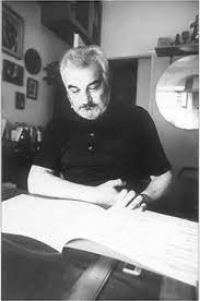
Franco Donatoni (9 June 1927 – 17 August 2000) was an Italian composer.Born in Verona, Donatoni started studying violin at the age of seven, and frequented the local music academy. Later, he studied at the Milan Conservatory and, from 1948, at the Bologna Conservatory.At least three generations of composers studied with Donatoni. Among his Italian pupils were Sandro Gorli, Roberto Carnevale, Giulio Castagnoli, Ivan Fedele, Luca Mosca, Riccardo Piacentini, Fausto Romitelli, Luc Brewaeys, Pietro Borradori, Giuseppe Sinopoli, Alessandro Solbiati, and Piero Niro; his foreign pupils include Michael Dellaira, Pascal Dusapin, Sylvie Bodorová, Esa-Pekka Salonen, Magnus Lindberg, Katia Tiutiunnik, Javier Torres Maldonado, and Juan Trigos. See: List of music students by teacher: C to F#Franco Donatoni.
Bløf
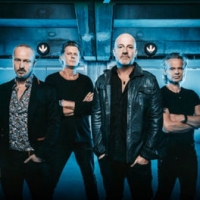
BLØF is a Dutch rock band from Vlissingen, Zeeland, founded in 1992 by Peter Slager. Current members are Peter Slager (bass), Paskal Jakobsen (lead vocals and guitar), Bas Kennis (keyboards), and Norman Bonink (drums). Former members are Henk Tjoonk (drums) and Chris Götte (drums).The group is one of the most popular bands in the Netherlands and has won 8 Edison Awards. In 2000, 2001, 2003, and 2004, they received the Edison Award for "Best Band in the Netherlands".
Vinicius de Moraes
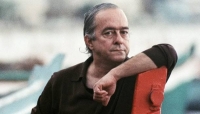
Marcus Vinicius da Cruz e Mello Moraes, also known as Vinicius de Moraes and nicknamed O Poetinha, was a Brazilian poet, lyricist, essayist, and playwright. He served as a diplomat, composed bossa nova music, and recorded several albums.
Nhac Viet

Traditional Vietnamese music encompasses a large umbrella of Vietnamese music from antiquity to present times, and can also encompass multiple groups, such as those from Vietnam's ethnic minority tribes
Margriet Verbeek
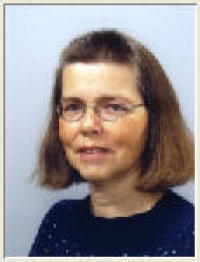
Was born in 1957 in Leiderdorp (The Netherlands), studied
classical guitar with Baltazar Benitez at the Brabant Academy for
Music, and composition with Jan van Dijk in Tilburg (The Netherlands)
classical guitar with Baltazar Benitez at the Brabant Academy for
Music, and composition with Jan van Dijk in Tilburg (The Netherlands)
John Kander
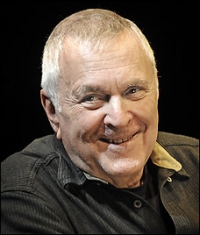
John Harold Kander is the American composer of a number of musicals as part of the songwriting team of Kander and Ebb. His best-known stage musicals as composer are Cabaret and Chicago, both of which were later adapted into films.
St. Martini
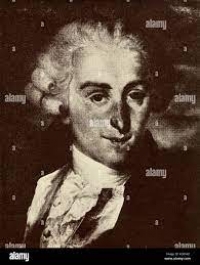
Giuseppe Francesco Gaspare Melchiorre Baldassare Sammartini (also Gioseffo, S Martini, St Martini, San Martini, San Martino, Martini, Martino; 6 January 1695 – between 17 and 23 November 1750) was an Italian composer and oboist during the late Baroque and early Classical era.
Patsy Cline
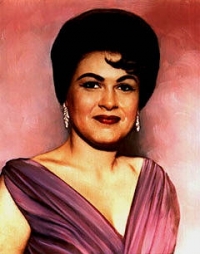
Patsy Cline (September 8, 1932–March 5, 1963), born Virginia Patterson Hensley, was an American country music singer who enjoyed pop music crossover success during the era of the Nashville sound in the early 1960s. Since her death at age 30 in a 1963 private airplane crash at the height of her career, she has been considered one of the most influential, successful and acclaimed female vocalists of the 20th century.
Cline was best known for her rich tone and emotionally expressive bold contralto voice, which, along with her role as a mover and shaker in the country music industry, has been cited as an inspiration by many vocalists of various music genres. Her life and career have been the subject of numerous books, movies, documentaries, articles and stage plays.
Her hits included "Walkin' After Midnight", "I Fall to Pieces", "She's Got You", "Crazy" and "Sweet Dreams". Posthumously, millions of her albums have been sold over the past 46 years and she has been given numerous awards, which have given her an iconic status with some fans similar to that of legends Johnny Cash and Elvis Presley. Ten years after her death, she became the first female solo artist inducted to the Country Music Hall of Fame.
In 2002, Cline was voted by artists and members of the country music industry as number one on CMT's television special, The 40 Greatest Women of Country Music, and in 1999 she was voted number 11 on VH1's special The 100 Greatest Women in Rock and Roll by members and artists of the rock industry. According to her 1973 Country Music Hall of Fame plaque, "Her heritage of timeless recordings is testimony to her artistic capacity."
Cline was best known for her rich tone and emotionally expressive bold contralto voice, which, along with her role as a mover and shaker in the country music industry, has been cited as an inspiration by many vocalists of various music genres. Her life and career have been the subject of numerous books, movies, documentaries, articles and stage plays.
Her hits included "Walkin' After Midnight", "I Fall to Pieces", "She's Got You", "Crazy" and "Sweet Dreams". Posthumously, millions of her albums have been sold over the past 46 years and she has been given numerous awards, which have given her an iconic status with some fans similar to that of legends Johnny Cash and Elvis Presley. Ten years after her death, she became the first female solo artist inducted to the Country Music Hall of Fame.
In 2002, Cline was voted by artists and members of the country music industry as number one on CMT's television special, The 40 Greatest Women of Country Music, and in 1999 she was voted number 11 on VH1's special The 100 Greatest Women in Rock and Roll by members and artists of the rock industry. According to her 1973 Country Music Hall of Fame plaque, "Her heritage of timeless recordings is testimony to her artistic capacity."
Luigi Boccherini

Ridolfo Luigi Boccherini (/ˌbɒkəˈriːni/, also US: /ˌboʊk-/, Italian: (About this soundlisten); 19 February 1743 – 28 May 1805) was an Italian, later Spanish, composer and cellist of the Classical era whose music retained a courtly and galante style even while he matured somewhat apart from the major European musical centers. He is best known for a minuet from his String Quintet in E, Op. 11, No. 5 (G 275), and the Cello Concerto in B flat major (G 482). The latter work was long known in the heavily altered version by German cellist and prolific arranger Friedrich Grützmacher, but has recently been restored to its original version.
Caro Emerald

Caroline Esmeralda van der Leeuw (born 26 April 1981), known by her stage name Caro Emerald, is a Dutch pop and jazz singer who mainly performs in English. Active since 2007, she rose to prominence in 2009 with her debut single, "Back It Up". Her follow-up single "A Night Like This" topped charts in the Netherlands. Emerald is often praised for her outstanding live performances.
Wilhelm Popp
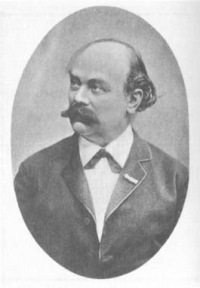
Wilhelm Popp was a famous German composer, flautist and pianist, of such eminence that he was known virtually throughout Europe as the ‘Czerny of the flute’, he composed over 600 works, very many of them for flute (often with piano), but including a noted setting of the Stabat Mater.
Alain Lefèvre
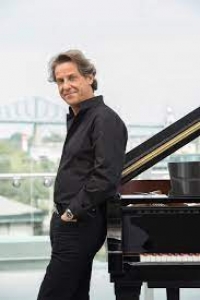
Alain Lefèvre, OC CQ is a French Canadian pianist and composer. He is one of the Québécois pianists who have sold the greatest number of musical recordings. In 2009, he was made a Knight of the National Order of Quebec. He was appointed an Officer of the Order of Canada in 2011.
Chico Buarque
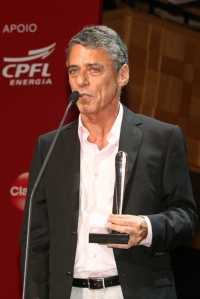
Francisco Buarque de Hollanda, popularly known simply as Chico Buarque, is a Brazilian singer-songwriter, guitarist, composer, playwright, writer, and poet. He is best known for his music, which often includes social, economic, and cultural reflections on Brazil.
spencer williams
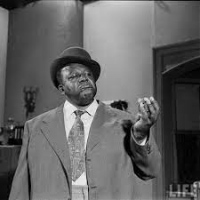
Spencer Williams was an American jazz and popular music composer, pianist, and singer. He is best known for his hit songs "Basin Street Blues", "I Ain't Got Nobody", "Royal Garden Blues", "I've Found a New Baby", "Everybody Loves My Baby", "Tishomingo Blues", and many others.
José Becerril Alatorre
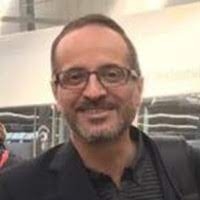
José Becerril Alatorre Composer Piano Player Classical/Contemporary Vocal Country MEXICO
Andres Valero-Castels
Born in Silla (Valencia, Spain) in 1973, Andrés Valero Castells studied music theory, trumpet and piano at the Conservatories of Valencia and Murcia before taking up composition, where he found his real calling. His works have been performed and published in Spain, France, the United States and Switzerland.
Pierre Vellones
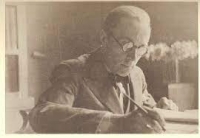
Pierre Vellones, pseudonyme de Pierre Édouard Léon Rousseau, est un compositeur français né à Paris le 29 mars 18891 et mort à Paris le 17 juillet 1939.Pierre Rousseau grandit au sein d’un foyer cultivant les arts et pratiquant la musique en famille. Comme son cousin Scellier de Gisors (architecte, prix de Rome), il possède un beau coup de crayon. Lorsque ses parents l’emmènent à l’Opéra assister à une représentation de Tannhäuser, c’est la révélation. Il est alors élève au Collège Stanislas.
Sammy Nestico
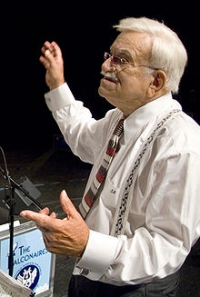
Samuel "Sammy" Louis Nestico (born February 6, 1924 in Pittsburgh, Pennsylvania) is a prolific and well known composer and arranger of big band music. Nestico is most known for his arrangements for the Count Basie orchestra.
Zoltan Paulinyi

Zoltán Paulínyi Körmendy (Pittsfield, MA, 1977) conhecido pelo nome artístico de Zoltan Paulini, é um violinista, violista (barroco e moderno) e compositor americano-brasileiro. É profissionalmente ativo desde 1995, e utiliza principalmente instrumentos fabricados e restaurados pelo luthier Carlos Martins del Picchia.
Andrea Bocelii
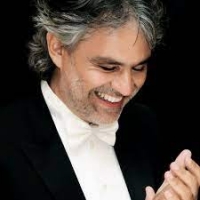
Andrea Bocelli OMRI OMDSM is an Italian opera tenor and multi-instrumentalist. He was diagnosed with congenital glaucoma at 5 months old, and became completely blind at age 12, following a football accident.
Edward Mollenhauer
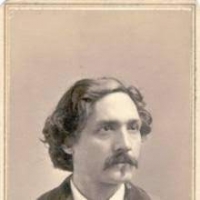
Edward Mollenhauer (1827–1914) was an American violinist and composer.Mollenhauer was born in Erfurt, Prussia. He studied under Heinrich Wilhelm Ernst and Louis Spohr, and had become famous in Germany and at Saint Petersburg before he was twenty-five years old. To escape conscription, he went to England, joined Jullien, and accompanied him to New York City in 1853. He settled there and became a founder in America of the Conservatory method of teaching the violin. Mollenhauer's best-known compositions for the violin are his quartets. He also wrote the operas, The Corsican Bride (1861), Breakers (1881), and The Masked Ball. He soloed with the New York Philharmonic Orchestra for six years. He also created a piece for violin with piano accompaniment, "The Boy Paganini" which is still played worldwide. Among those he taught were African-American soloist and orchestra director, Walter F. Craig.
Mark Lowry

Mark Alan Lowry is an American singer, comedian, minister and songwriter. He is best known for co-writing the song "Mary, Did You Know?" and being a member of the Gaither Vocal Band from 1988 to 2001, and 2009 to 2013, along with Michael English, Guy Penrod, David Phelps and Bill Gaither.
Traditional

north royalton community band

The North Royalton Community Band was founded in 1998 and has grown to become a
well-rounded concert organization within a very short time. NRCB performs four to five scheduled concerts each year along with other special event concerts, playing a wide variety of music from marches to overtures, Broadway to Hollywood, classics to contemporary. All of our concerts are free and open to the public.
well-rounded concert organization within a very short time. NRCB performs four to five scheduled concerts each year along with other special event concerts, playing a wide variety of music from marches to overtures, Broadway to Hollywood, classics to contemporary. All of our concerts are free and open to the public.
Carl Maria von Weber
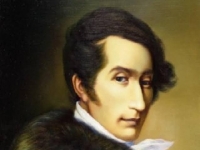
Carl Maria Friedrich Ernst von Weber was a German composer, conductor, pianist, guitarist and critic, and was one of the first significant composers of the Romantic school.
COLORADO COOK BOOK
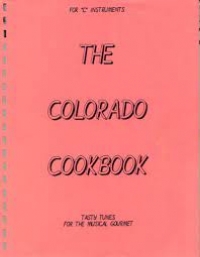
FOR "C" INSTRUMENTS. THE. COLORADO. COOKBOOK. TASTY TUNES. FOR THE MUSICAL GOURMET
D'Sound
D'Sound is a Norwegian neo soul band based in Oslo, Norway. The band was formed in 1993 with a line-up composed of lead vocalist Simone Eriksrud, bassist Jonny Sjo and drummer Kim Ofstad.
Howard Shore

Howard Leslie Shore (born October 18, 1946) is a Canadian composer, notable for his film scores. He has composed the scores for over 40 films, most notably the scores for The Lord of the Rings film trilogy, for which he won three Academy Awards. He is also a consistent collaborator with director David Cronenberg, having scored all but one of his films since 1979. Shore has also worked with Martin Scorsese, Jonathan Demme, David Fincher and many other filmakers.
He has also composed a few concert works including one opera, The Fly, based on the plot (though not his score) of Cronenberg's 1986 film premiered at the Théâtre du Châtelet in Paris on 2 July 2008., a short piece Fanfare for the Wanamaker Organ and the Philadelphia Orchestra, and a short overture for the Swiss 21st Century Symphony Orchestra.
Shore is a three-time winner of the Academy Award, and has also won two Golden Globe Awards and four Grammy Awards. He is the uncle of film composer Ryan Shore.
He has also composed a few concert works including one opera, The Fly, based on the plot (though not his score) of Cronenberg's 1986 film premiered at the Théâtre du Châtelet in Paris on 2 July 2008., a short piece Fanfare for the Wanamaker Organ and the Philadelphia Orchestra, and a short overture for the Swiss 21st Century Symphony Orchestra.
Shore is a three-time winner of the Academy Award, and has also won two Golden Globe Awards and four Grammy Awards. He is the uncle of film composer Ryan Shore.
Duke Ellington

Edward Kennedy "Duke" Ellington (April 29, 1899 â May 24, 1974) was an American composer, pianist, and bandleader.
Recognized during his life as one of the most influential figures in jazz, if not in all American music, Ellington's reputation has increased since his death, including a special award citation from the Pulitzer Prize Board.
Ellington called his style and sound "American Music" rather than jazz, and liked to describe those who impressed him as "beyond category", including many of the musicians who served with his orchestra, some of whom were themselves considered among the giants of jazz and remained with Ellington's orchestra for decades. While many were noteworthy in their own right, it was Ellington that melded them into one of the most well-known orchestral units in the history of jazz. He often composed specifically for the style and skills of these individuals, such as "Jeep's Blues" for Johnny Hodges, "Concerto for Cootie" ("Do Nothing Till You Hear from Me") for Cootie Williams and "The Mooche" for Tricky Sam Nanton. He also recorded songs written by his bandsmen, such as Juan Tizol's "Caravan" and "Perdido" which brought the "Spanish Tinge" to big-band jazz. After 1941, he frequently collaborated with composer-arranger Billy Strayhorn, who he called his alter-ego.
One of the twentieth century's best-known African-American celebrities, Ellington recorded for many American record companies, and appeared in several films. Ellington and his orchestra toured the United States and Europe regularly before and after World War II. Ellington led his band from 1923 until his death in 1974. His son Mercer Ellington took over the band until his death from cancer in 1996. Paul Ellington, Mercer's youngest son, took over the Orchestra from there and after his mother's passing took over the Estate of Duke and Mercer Ellington.
Recognized during his life as one of the most influential figures in jazz, if not in all American music, Ellington's reputation has increased since his death, including a special award citation from the Pulitzer Prize Board.
Ellington called his style and sound "American Music" rather than jazz, and liked to describe those who impressed him as "beyond category", including many of the musicians who served with his orchestra, some of whom were themselves considered among the giants of jazz and remained with Ellington's orchestra for decades. While many were noteworthy in their own right, it was Ellington that melded them into one of the most well-known orchestral units in the history of jazz. He often composed specifically for the style and skills of these individuals, such as "Jeep's Blues" for Johnny Hodges, "Concerto for Cootie" ("Do Nothing Till You Hear from Me") for Cootie Williams and "The Mooche" for Tricky Sam Nanton. He also recorded songs written by his bandsmen, such as Juan Tizol's "Caravan" and "Perdido" which brought the "Spanish Tinge" to big-band jazz. After 1941, he frequently collaborated with composer-arranger Billy Strayhorn, who he called his alter-ego.
One of the twentieth century's best-known African-American celebrities, Ellington recorded for many American record companies, and appeared in several films. Ellington and his orchestra toured the United States and Europe regularly before and after World War II. Ellington led his band from 1923 until his death in 1974. His son Mercer Ellington took over the band until his death from cancer in 1996. Paul Ellington, Mercer's youngest son, took over the Orchestra from there and after his mother's passing took over the Estate of Duke and Mercer Ellington.
Richard Kearns
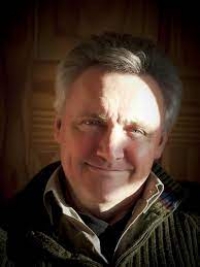
He was born in 1952 at North Gloucester Place, Dublin, Ireland. He died in 2014.
bijan mortazavi

Bijan Mortazavi (Persian: بیژن مرتضوی, born November 16, 1957) is an Iranian virtuoso violinist, musician, composer, songwriter, arranger and singer.Born in the city of Sari, Iran. Mortazavi studied music in Tehran. He was trained in improvisation, orchestration, arrangement, quarter tone technique, and dastgah by various well-known violinists in Iran.
Now and Then, Here and There
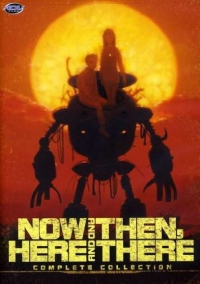
A young boy named Shuzo "Shu" Matsutani rushes to the defense of a young stranger who is being attacked for her magic pendant, only to find himself transported into another world where water is a scarce commodity and he is forced to join an army of children in this Japanese anime.
Carlos Paredes
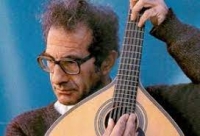
Carlos Paredes ComSE (Portuguese pronunciation: ; 16 February 1925 – 23 July 2004) was a virtuoso Portuguese guitar player and composer. He is regarded as one of the greatest players of Portuguese guitar of all-time.
Born in Coimbra, Portugal, in a family with a long tradition of guitar playing, he was taught to play the Portuguese guitar by his father, Artur Paredes. He composed numerous soundtracks for cinema and theatre, such as the soundtrack for the Portuguese film Os Verdes Anos (1963), which contains his famous piece "Canção Verde Anos". He released several recordings as a solo artist and performed in numerous countries worldwide.Besides his music career, Paredes also worked in the public service for most of his life. In 1958, during Portugal's dictatorial Estado Novo regime, he was imprisoned for 18 months for joining the Portuguese Communist Party, at the time an illegal organization.
Born in Coimbra, Portugal, in a family with a long tradition of guitar playing, he was taught to play the Portuguese guitar by his father, Artur Paredes. He composed numerous soundtracks for cinema and theatre, such as the soundtrack for the Portuguese film Os Verdes Anos (1963), which contains his famous piece "Canção Verde Anos". He released several recordings as a solo artist and performed in numerous countries worldwide.Besides his music career, Paredes also worked in the public service for most of his life. In 1958, during Portugal's dictatorial Estado Novo regime, he was imprisoned for 18 months for joining the Portuguese Communist Party, at the time an illegal organization.
Ludwig van Beethoven

Ludwig van Beethoven (/ˈlʊdvɪɡ væn ˈbeɪt(h)oʊvən/ (About this soundlisten); German: (About this soundlisten); baptised 17 December 1770 – 26 March 1827) was a German composer and pianist. A crucial figure in the transition between the classical and romantic eras in classical music, he remains one of the most recognized and influential musicians of this period, and is considered to be one of the greatest composers of all time.
Beethoven was born in Bonn, the capital of the Electorate of Cologne, and part of the Holy Roman Empire. He displayed his musical talents at an early age and was vigorously taught by his father Johann van Beethoven, and was later taught by composer and conductor Christian Gottlob Neefe. At age 21, he moved to Vienna and studied composition with Joseph Haydn. Beethoven then gained a reputation as a virtuoso pianist, and was soon courted by Prince Lichnowsky for compositions, which resulted in Opus 1 in 1795.
Beethoven was born in Bonn, the capital of the Electorate of Cologne, and part of the Holy Roman Empire. He displayed his musical talents at an early age and was vigorously taught by his father Johann van Beethoven, and was later taught by composer and conductor Christian Gottlob Neefe. At age 21, he moved to Vienna and studied composition with Joseph Haydn. Beethoven then gained a reputation as a virtuoso pianist, and was soon courted by Prince Lichnowsky for compositions, which resulted in Opus 1 in 1795.
Dmitry Evgrafov

Dmitry Evgrafov. composer & sound designer. About. Having studied Sound Design in Moscow, Dmitry's music blends intimate piano parts with delicately ...
Howard Blake
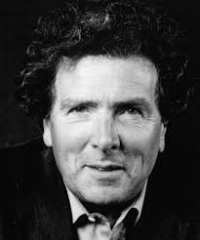
Howard Blake OBE (born 28 October 1938, London) is an English composer whose career has spanned over 50 years and produced more than 650 works. Most successful is his soundtrack for Channel 4’s 1982 film The Snowman including the song Walking In The Air. He is increasingly recognised for his classical works including concertos, oratorios, ballets, operas and many instrumental pieces. The New Grove Dictionary of Music and Musicians states: ‘Howard Blake has achieved fame as pianist, conductor and composer
Moulin Rouge
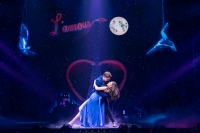
Moulin Rouge! (/ˌmuːlæ̃ ˈruːʒ/, French: ) is a 2001 jukebox musical romantic drama film directed, co-produced, and co-written by Baz Luhrmann. The film tells the story of a young English poet/writer, Christian (Ewan McGregor), who falls in love with the star of the Moulin Rouge, cabaret actress and courtesan Satine (Nicole Kidman). It uses the musical setting of the Montmartre Quarter of Paris, France. The film is the third part of Luhrmann's "Red Curtain Trilogy," following Strictly Ballroom and Romeo + Juliet.
Suzanne Vega
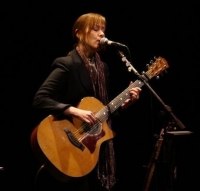
Suzanne Nadine Vega (d. 11 Temmuz 1959), Amerikalı şarkıcı-şarkı yazarı, müzisyen ve albüm yapımcısıdır. Halk müziğinden esinlenen müziği ile tanınır.1980'lerin ortasında çıkardığı dört teklinin ("Marlene on the Wall", "Left of Center", "Luka" ve "No Cheap Thrill") 1980'lerde ve 1990'larda Birleşik Krallık'ta En İyi 40 listelerinde yer alması şöhretinin başlangıcı olmuştur. Aslen Vega'nın ikinci albümü Solitude Standing'de akapella kaydı olarak yer alan "Tom's Diner"ın 1990'da İngiliz elektronik müzik ikilisi DNA tarafından remiksi yapılmıştır ve bu parça beş ülkede En İyi 10 listelerine girmiştir. Ayrıca bu parça MP3 formatının oluşumunda test amaçlı kullanılmıştır.
Zdenko Fibich
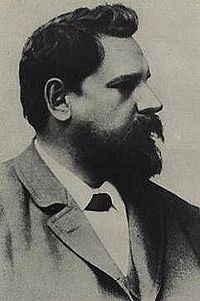
Zdeněk Fibich (Czech pronunciation: , 21 December 1850 – 15 October 1900) was a Czech composer of classical music. Among his compositions are chamber works (including two string quartets, a piano trio, piano quartet and a quintet for piano, strings and winds), symphonic poems, three symphonies, at least seven operas (the most famous probably Šárka and The Bride of Messina), melodramas including the substantial trilogy Hippodamia, liturgical music including a mass – a missa brevis; and a large cycle (almost 400 pieces, from the 1890s) of piano works called Moods, Impressions, and Reminiscences. The piano cycle served as a diary of sorts of his love for a piano pupil. He was born in Všebořice (Šebořice) near Čáslav.
Robbie Williams
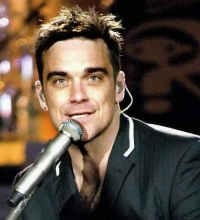
Robert Peter Maximilian Williams (born 13 February 1974) is a Grammy Award-nominated, 15-time BRIT Award-winning English singer-songwriter. His career started as a member of the pop band Take That in 1990. He left Take That in 1995 to begin his solo career, after selling 25 million records with the group.
His album sales stand at over 55 million, with singles sales over 17 million.
Williams entered the The Guinness Book of World Records when in just one day he sold more than 1.6 million tickets for his 2006 world tour. He has been the recipient of many awards, including fifteen BRIT and six ECHO awards. In 2004, he was inducted into the UK Music Hall of Fame, after being voted as the Greatest artist of the 1990s.
Robbie Williams is the artist who is currently featured the most times in the UK Now That's What I Call Music! series. In the first 68 Now!s he has appeared 29 times (including 4 times with Take That). His first appearance was with Take That on Now 22 and his most recent appearance was on Now 66 with "She's Madonna".
His album sales stand at over 55 million, with singles sales over 17 million.
Williams entered the The Guinness Book of World Records when in just one day he sold more than 1.6 million tickets for his 2006 world tour. He has been the recipient of many awards, including fifteen BRIT and six ECHO awards. In 2004, he was inducted into the UK Music Hall of Fame, after being voted as the Greatest artist of the 1990s.
Robbie Williams is the artist who is currently featured the most times in the UK Now That's What I Call Music! series. In the first 68 Now!s he has appeared 29 times (including 4 times with Take That). His first appearance was with Take That on Now 22 and his most recent appearance was on Now 66 with "She's Madonna".
Vladimir Sramek
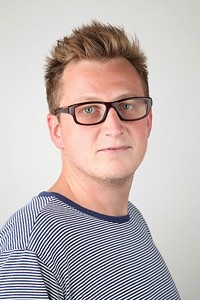
Vladimír Šrámek Composer Born: March 10, 1923 Died: February 17, 2004
Brett James
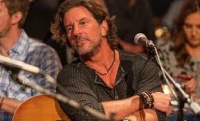
Brett James Cornelius is an American country music singer, songwriter, and record producer based in Nashville. James' compositions have been credited on 494 recordings by a wide variety of artists.
Elpidio Ramírez
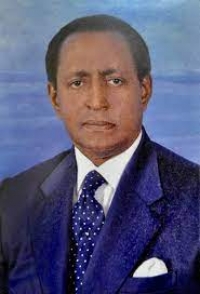
Elpidio Ramírez Burgos, conocido como El Viejo Elpidio (Xoxocapa, Ilamatlán, Veracruz, México, 4 de marzo de 1882-14 de julio de 1960) fue un violinista, compositor, arreglista y revolucionario mexicano. Es considerado precursor del género musical conocido como huapango.
 Sheet Music Network is a site for those who wants to access popular sheet music easily,
letting them download the sheet music for free for trial purposes.
It's completely free to download and try the listed sheet music, but you have to delete the files after 24 hours of trial.
Don't forget, if you like the piece of music you have just learned playing,
treat the artist with respect, and go buy the original sheet music.
Sheet Music Network is a site for those who wants to access popular sheet music easily,
letting them download the sheet music for free for trial purposes.
It's completely free to download and try the listed sheet music, but you have to delete the files after 24 hours of trial.
Don't forget, if you like the piece of music you have just learned playing,
treat the artist with respect, and go buy the original sheet music.